- About ARCS
- National Leadership
- FAQ
- Diversity, Equity, and Inclusion
- Members
Government Investment in Research
ARCS Foundation Statement on Announced Reduction in Federal Funding for Research
 On Feb. 12, 2025, ARCS Foundation, Inc., issues a statement that reads in part:
On Feb. 12, 2025, ARCS Foundation, Inc., issues a statement that reads in part:
We believe reduction of reimbursement of key costs may put the important research of our PhD scholars at risk. More broadly, we are deeply concerned that these cuts will impact critical US scientific progress, drastically reduce the scientific competitiveness of the United States, and harm a long-standing partnership between academic institutions and the federal government. Read the complete statement"We are concerned for our scholars at this unsettling time," ARCS Foundation President Beth Wainwright stressed. "We urge scholars who face difficulties due to Federal executive orders or funding reductions to contact their sponsoring chapters or email national@arcsfoundation.org." In response to inquiries from members wishing to express opinions, she recommends that they share their concerns as individuals with their Senators and Representatives.
ARCS Partners Join Call Opposing ‘Undue Government Intrusion’
Nine ARCS partner universities are among the 150 signatories on "A Call for Constructive Engagement," an open letter that opposes "unprecedented government overreach and political interference now endangering American higher education." The presidents of Carnegie Mellon, Northwestern, and San Francisco State Universities; the Universities of Hawai‘i, Maryland, San Diego, Virginia, and Washington; and Pomona College signed the letter, along with the leaders of the Association of American Universities, American Association of Colleges and Universities, Association of Governing Boards of Universities and Colleges, and the American Academy of Arts and Sciences. Read the letter
If Your Federal Grant is Terminated…
The Transmittor, a newsletter resource for the neuroscience community offers advice for reserachers whose federal grants are terminated in Five things to know if your federal grant is terminated.
Understanding Research Overhead
Facilities and administrative (F&A) costs include a range of indirect expenses not directly covered by research grants—from janitorial and support staff, to utilities and computing, to workplace safety compliance and service contracts for high-end research equipment.

Watch the video or read a factsheet describing what F&A reimbursements (also known as indirect costs or overhead) are, how they are determined, and why they are important.
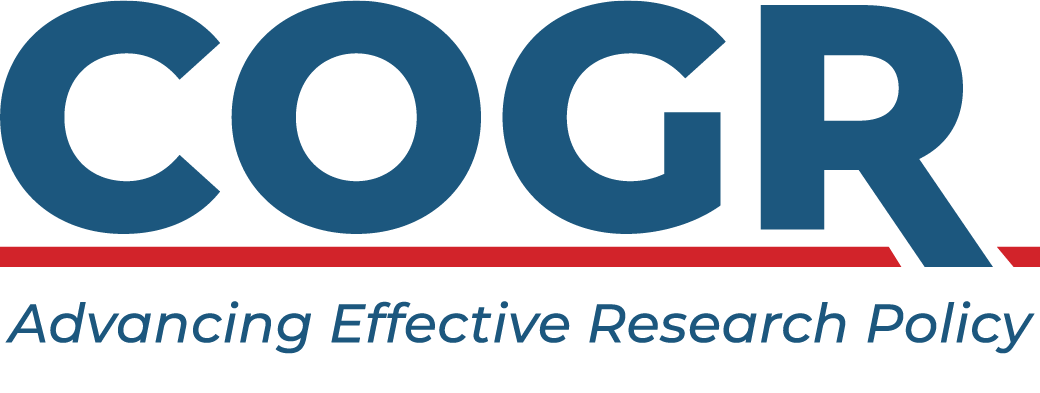 "Investing in science is investing in our future—it’s good for people’s health, for our quality of life, and for the economy," states the Council on Government Relations. Reducing F&A reimbursements would have a disasterous impact on research institutions' ability to foster technologial innovation, advance medical discoveries, sustain a dynamic American economy, and protect our national security, COGR warns. It maintains that the reimbursement process is efficient, based on acutal research costs, and already partially borne by universities. In fiscal 2023 universities paid $28 billion from their own institutional funds to support research, including $6.8 billion for the federal share of F&A costs that wasn't reimbursed.
"Investing in science is investing in our future—it’s good for people’s health, for our quality of life, and for the economy," states the Council on Government Relations. Reducing F&A reimbursements would have a disasterous impact on research institutions' ability to foster technologial innovation, advance medical discoveries, sustain a dynamic American economy, and protect our national security, COGR warns. It maintains that the reimbursement process is efficient, based on acutal research costs, and already partially borne by universities. In fiscal 2023 universities paid $28 billion from their own institutional funds to support research, including $6.8 billion for the federal share of F&A costs that wasn't reimbursed.
An association of research universities (including 42 ARCS partner institutions), affiliated medical centers, and independent research institutes, COGR is the national authority on federal policies and regulations affecting U.S. research institutions.
Comments from Leading Organizations on Withholding of NIH FundingCouncil on Competitiveness
 Proposed reduction to National Institutes of Health funding "will negatively impact ongoing, critical life sciences and medical research at a time when competitors, especially China, are looking for any advantage to seize the lead in the global innovation race, and to dominate critical exponential technologies from AI to the biosciences." Read the complete statement
Proposed reduction to National Institutes of Health funding "will negatively impact ongoing, critical life sciences and medical research at a time when competitors, especially China, are looking for any advantage to seize the lead in the global innovation race, and to dominate critical exponential technologies from AI to the biosciences." Read the complete statement
ARCS Foundation is a member of the council, which unites leaders from academia, business, labor, and the national labs, in a nonpartisan effort to lead the global economy, strengthen the innovation infrastructure, and raise the standard of living for all Americans.
American Association of Universities
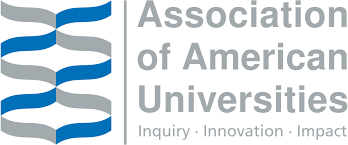 "A cut to F&A reimbursements for NIH grants is quite simply a cut to the life-saving medical research that helps countless American families.” Read AAU President Barbara Snyder's complete statement
"A cut to F&A reimbursements for NIH grants is quite simply a cut to the life-saving medical research that helps countless American families.” Read AAU President Barbara Snyder's complete statement
27 ARCS partner universities are members of AAU.
Association of Public Land Grant Universities
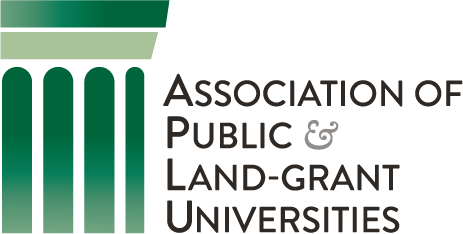 "This action will slow advances for millions of patients who desperately need critical breakthroughs and imperil the U.S. position as the world leader in biomedical innovation." Read APLU President Mark Becker's complee statement
"This action will slow advances for millions of patients who desperately need critical breakthroughs and imperil the U.S. position as the world leader in biomedical innovation." Read APLU President Mark Becker's complee statement
27 ARCS partner universities are members of APLU.
NOTE: AAU and APLU joined with the American Council on Education in legal action contesting NIH cuts to F&A. Read more
American Association for the Advancement of Science
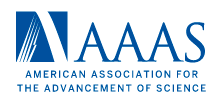 “Science, engineering and medicine are searches for truth, facts and objectivity. We live in a time when that seems under threat,” observed AAAS Chief Executive Officer Sudip Parikh at the 2025 AAAS Annual Meeting in Boston. "Decisions made by all three branches of the U.S. government in the weeks ahead will affect our enterprise for years to come," added Board Chair Joseph Francisco. Read more
“Science, engineering and medicine are searches for truth, facts and objectivity. We live in a time when that seems under threat,” observed AAAS Chief Executive Officer Sudip Parikh at the 2025 AAAS Annual Meeting in Boston. "Decisions made by all three branches of the U.S. government in the weeks ahead will affect our enterprise for years to come," added Board Chair Joseph Francisco. Read more
DOWNLOAD AAAS PDFs providing talking points for expressing support for science and instructions for visiting Congressional representatives.
In February AAAS and the Royal Society released Science Diplomacy in an Era of Disruption, a science diplomacy framework addressing challenges including increased economic competition, rapid technological advancements like artificial intelligence, and the rise of non-state actors including “tech titans.”
IN THE NEWSEurope Pledges €600 Million to Lure Foreign Researchers, Vows to Protect Scientific Freedom
AAAS Science, May 5, 2025Trump vs Science
New York Times, April 25, 2025These 77 Colleges Have the Most to Lose from Trump's Cuts
Chronicle of Higher Education, April 10, 2025 (list includes 22 ARCS partner universities)Energy Department Cuts University Overhead Rates to 15% on Research Grants
AAAS Science, April 11, 2025Don't Quit the Long Game
AAAS Science, April 3, 2025Scientists sound alarm on dismantling of research funding
PBS News, March 31, 2025 (Read the letter in the New York Times)How U.S. colleges are navigating cuts to grants for research
PBS News, March 28, 2025The End of the Univerity as We Know It
Guest editorial, New York Times, March 16, 20205The Authoritarian Endgame on Higher Education
New York Times opinion, March 15, 2025Federal research instability risks postdoc careers, American leadership
STAT op ed, March 13, 2025US Universities Reduce PhD Admissions in Response to Federal Funding Cuts
The Scientist, Feb. 27, 2025FROM ARCS PARTNER UNIVERSITIESSTANFORD
"Every study … has found that a dollar put into university research and science has a payoff of multiple dollars over time in social benefits,” says economist and Stanford University President Jonathan Levin. Read more
UC SAN DIEGO
 Faciliites and administration (F&A) funding is the foundation of discovery, this video explains.
Faciliites and administration (F&A) funding is the foundation of discovery, this video explains.
HAWAII
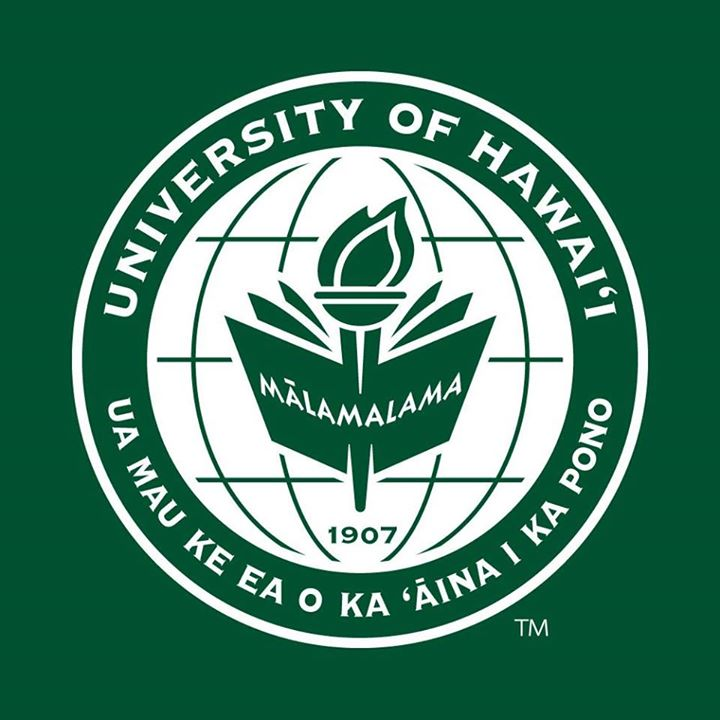 48 programs are being terminated, paused, or phased out, affecting 82 employees and $36 million in grants, President Wendy Hensel reported. See Federal Policies and Updates.
48 programs are being terminated, paused, or phased out, affecting 82 employees and $36 million in grants, President Wendy Hensel reported. See Federal Policies and Updates.
WASHINGTON STATE
 "We're talking about an absolutely massive budgetary challenge," Provost T. Riley-Tillman said about proposed NIH funding cuts.
"We're talking about an absolutely massive budgetary challenge," Provost T. Riley-Tillman said about proposed NIH funding cuts.
JOHNS HOPKINS
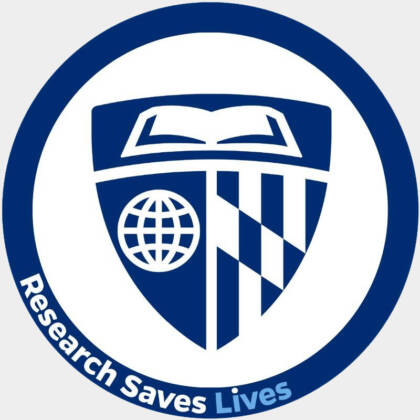 "We are watching America cede its supremacy in biomedical science, and we may never regain our position," writes Professor Jordan Green in the Research Saves Lives project.
"We are watching America cede its supremacy in biomedical science, and we may never regain our position," writes Professor Jordan Green in the Research Saves Lives project.
SAN DIEGO STATE UNIVERSITY
Visit the federal updates and actions page.
WASHINGTON
The Alumni Association’s UW Impact! legislative advocacy program offers alerts on key issues and ways to advocate for funding and policies that support discovery. Learn more
UNIVERSITY OF CALIFORNIA SYSTEM
Federal Updates webpage links to an Executive Order tracker.

